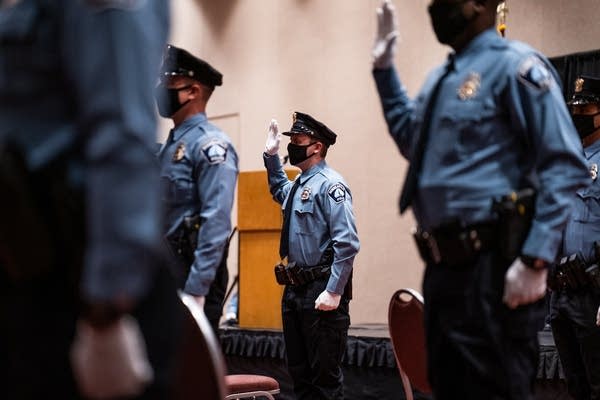Leaders: Minneapolis police field training needs better oversight
A new report from the city's audit committee recommends new measures to better train the trainers

New police officers raise their hands to take an oath at a Minneapolis Police Academy graduation ceremony at the Minneapolis Convention Center. A report released Monday points out flaws in the Minneapolis Police Department’s training practices.
Evan Frost | MPR News 2020
Go Deeper.
Create an account or log in to save stories.
Like this?
Thanks for liking this story! We have added it to a list of your favorite stories.


